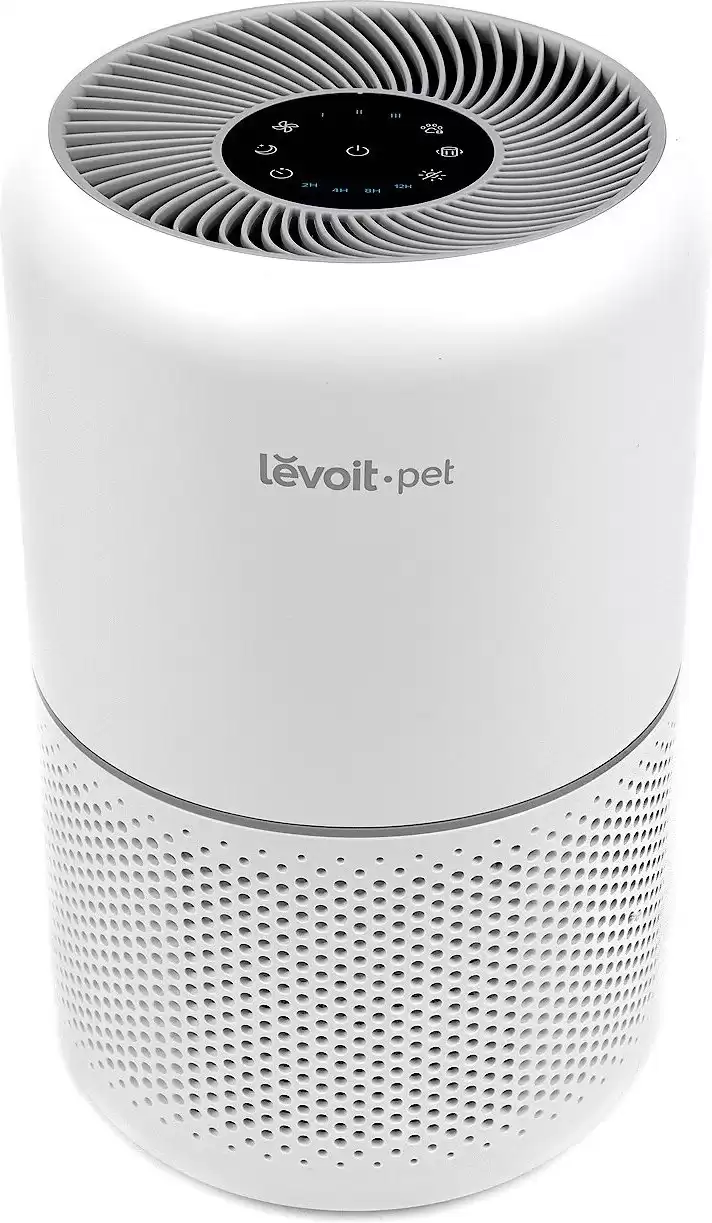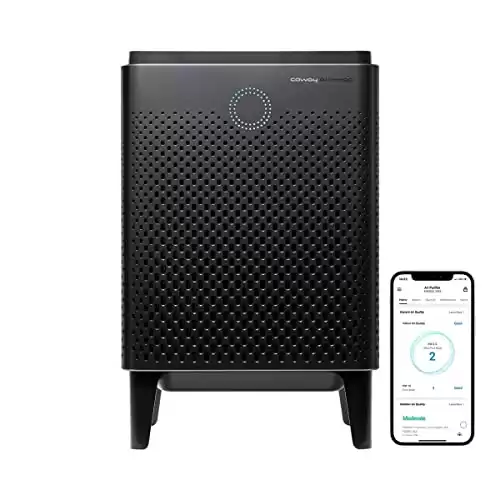Believe it or not, cats can suffer from asthma just like humans can. It affects between 1 and 5% of all cats and is thought to be caused by an allergic reaction to allergens in the air. When a cat breathes in the allergens in the form of tiny particles, their airways can become inflamed and their immune system is stimulated to respond. Read on to learn more about asthma in cats and what you can do to treat it.
How Do You Know if a Cat Has Asthma?
There are a few common signs to be on the lookout for to know if your cat suffers from asthma. Some of the signs include wheezing, difficulty breathing, coughing, hacking, vomiting, rapid breathing rate, or open-mouth breathing.
When cats suffer from asthma, it is usually due to the allergens that they are breathing in. These allergens can trigger an immune response in the cat which leads to inflammation in the airways. This inflammation and swelling are what make it difficult for your cat to breathe.
What Do I Do if My Cat Has Asthma?
If you notice any of the signs and symptoms mentioned above in your cat, you should get it to the vet as soon as you can. Asthma in cats should be treated promptly so that your cat isn’t in unnecessary discomfort—especially for prolonged periods of time. If left untreated, asthma in cats can be very dangerous.
Fortunately, there are treatment options that can greatly improve the quality of your cat’s life, even if they are suffering from asthma. The sooner you get your cat to the vet, the faster your cat can get relief.
What Is the Life Expectancy for Cats That Have Asthma?
Cats that have asthma do not necessarily have shorter lifespans than most other cats. As long as their asthma is properly treated and managed well, cats with asthma can have the same life expectancy as those that do not.
There is currently no “cure” for asthma, but there are many treatment options available. For many cats, it is still a condition that they will have to deal with their entire lives, but they can still lead happy, healthy, and active lives—even with asthma.
Cats that develop asthma, usually do so between the ages of two and eight years old.
Is There a Natural Remedy for Cats That Have Asthma?
As mentioned above, there is no known “cure” for asthma. However, there are some remedies that can be used to help ease your cat’s symptoms. As always, before you give your cat any natural treatment, it is always best to consult your veterinarian first to be sure that your cat is getting the help that it needs, as asthma is a serious health condition. Here are a few measures you can take to help relieve your cat’s asthma symptoms:
Air Purifiers
Air purifiers are not only beneficial to humans but to our animal friends as well. The same allergens that irritate our airways and make us sneeze and cough can do the same to our cats as well, and air purifiers can help this.
A good-quality air purifier can help cleanse the air of floating allergens and particles that inflame your cat’s airways when inhaled. Having an air purifier is one of the simplest ways you can help reduce your cat’s allergy and asthma symptoms as it doesn’t involve giving your cat something to ingest each day (which can prove to be very difficult).
Some of the best air purifiers with work to remove things like volatile organic compounds (VOCs) from the air, as well as other harmful toxins. Poor indoor air quality is bad for both people and pets and it can have a negative impact on your cat’s overall health. Just be sure that when choosing an air purifier you will also be keeping physical safety in mind.
One of the only real risks involved with having an air purifier for your cat is the risk of it becoming tangled in the cords or chewing on them. This goes for any electrical device in your home. As long as you keep an eye on your pet and keep cords out of the way, having an air purifier can be perfectly safe and beneficial for you and your cat.
•Pet home air purifier
•Triple filter
•Small appliance
•Fast-acting
Reduce Stress
As unlikely as it may sound, stress can actually be a trigger for some cats that have asthma. This can be a tricky one since the source of the stress for cats can vary greatly. Sources of stress can be anything from a change in the cat’s environment, to a lack of love and attention from their owner.
You can help reduce your cat’s stress by creating a calm, safe, environment where your cat feels comfortable on a day-to-day basis. It also helps to stick to a routine. For example, try feeding your cat at the same time each day. That way your cat doesn’t feel stressed about not knowing when they’ll receive their next meal. Uncertainty about feeding times can cause a lot of stress for your cat and you may find it begging for food from you at different times throughout the day.
These increased levels of stress can result in an inflammatory response within your cat and over time can trigger things like asthma. If you begin feeding your cat at the same time each day, your cat knows when to expect it, which can result in less stress for you and your cat.
•True HEPA air purifier
•AOC-activated carbon filter for odors
•PlasmaWave
•Sleep mode
Monitor Your Cat’s Diet and Weight
Your cat’s diet and weight are both important factors when it comes to managing or preventing asthma in cats. It is important to be sure that you’re feeding your cat a healthy, balanced diet to ensure that it is receiving all of the daily nutrients that it needs from its meals. A balanced diet helps give your cat all the tools it needs to keep its immune system functioning properly so that it can fight inflammation and reduce asthma symptoms.
You may want to try switching your cat over to food for cats with allergies. This would be a low-allergen diet that can help with reducing inflammation in your cat’s body by eliminating some of the most common food allergens from its diet. This in turn could also help reduce your cat’s weight if it is overweight or obese. Being at a healthy weight is important when it comes to respiratory function. Your vet can help you figure out what the best dietary approach is for reducing your cat’s weight and helping it get on track to good health. Here are a few tips that you may want to try:
- Reduce the portion sizes of your cat’s food. Try feeding smaller amounts multiple times per day.
- Feed your cat a specialized cat food that is specifically formulated for cats with allergies or to promote weight loss.
- Have more play-time with your cat. Getting your cats engaged with play-time can help your cat be more active and as a result, lose weight.
•Air purifier for 1,560 sq. ft.
•Smart technology
•Multi-mode
•2-filter action
Reduce Indoor Allergens
Besides having an air purifier in your home, there are other ways that you can help reduce the number of allergens in the air. First, it’s important to know what kind of things are considered allergens. This could be things like scented fragrances, candles, dust, chemicals, pollen, and smoke.
All of these things can trigger allergy and asthma symptoms in your cat. Some of them are easy to reduce on your own without the need for an air purifier. You can swap out harsh chemical cleaning solution sprays for more healthy, natural ones. You can also be sure to dust your home regularly so that it doesn’t build up in the air.
If you smoke, try not to do so indoors or near the cat. If indoor smoke can’t be avoided, try opening the windows to allow fresh, clean air to circulate and remove some of the smoke from the air. This will help improve the health of everyone indoors, as indoor air can in some cases, be even more polluted than the air outdoors.
•Affordable air purifier for home
•3-filter action
•Sleep mode with night-light
You can also switch to using a low-dust cat litter. A lot of dust from the litter can be deposited into the air when the litter box is cleaned or whenever your cats go to use it. If you have cat litter than is low-dust, it reduces the number of litter particles that get picked up into the air, reducing the amount of inflammation your cat experiences.
Also try to opt for one that is fragrance-free, as a lot of times, the fragrances in the cat litter can be too strong or harsh for your cat’s nose and can cause irritation and allergies. Adding a thin layer of baking soda to the bottom of your cat’s litter box can help absorb some of the odors from the litter box without adding irritation to your cat’s respiratory system.
Up Next
- Want the Best Cat Food for Allergies? Here They Are
- The Best Air Purifiers for Homes with Pets
- Blue Buffalo Weight Control Cat Food—Reviewed and Ranked for 2022
The photo featured at the top of this post is © Photography by Adri/Shutterstock.com
Sources
- Trudell Animal Health, Available here: https://www.trudellanimalhealth.com/learn/further-reading/cat-asthma-symptoms-causes-treatments
- Trudell Animal Health, Available here: https://www.trudellanimalhealth.com/learn/further-reading/cat-asthma-natural-remedies
- Live Science, Available here: https://www.livescience.com/are-air-purifiers-safe-for-pets
Thank you for reading! Have some feedback for us? Contact the AZ Animals editorial team.










